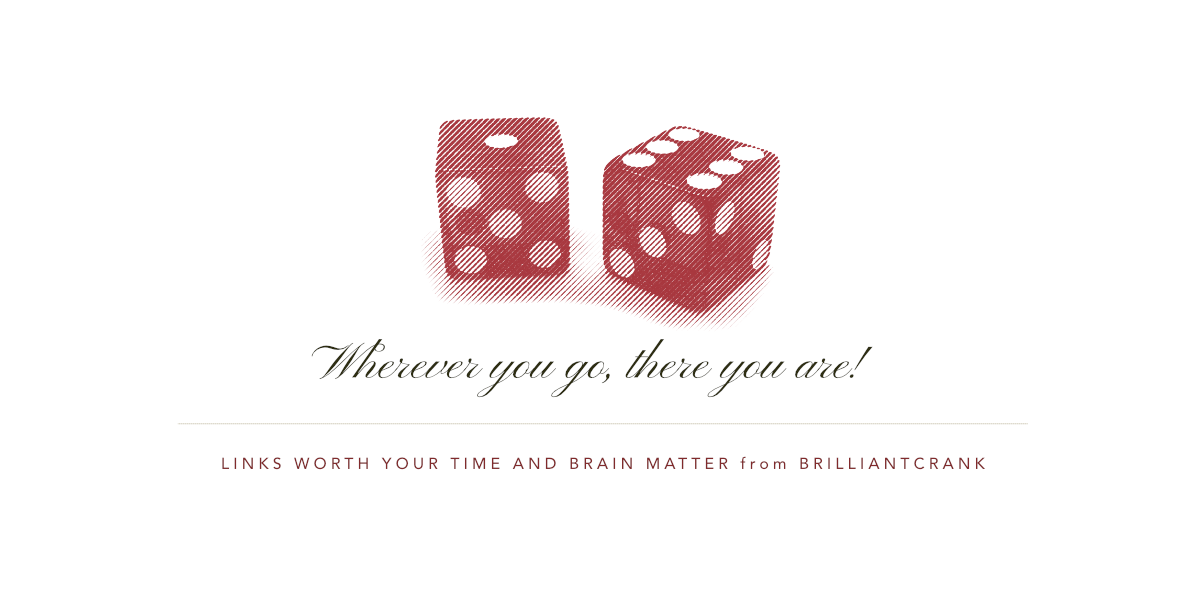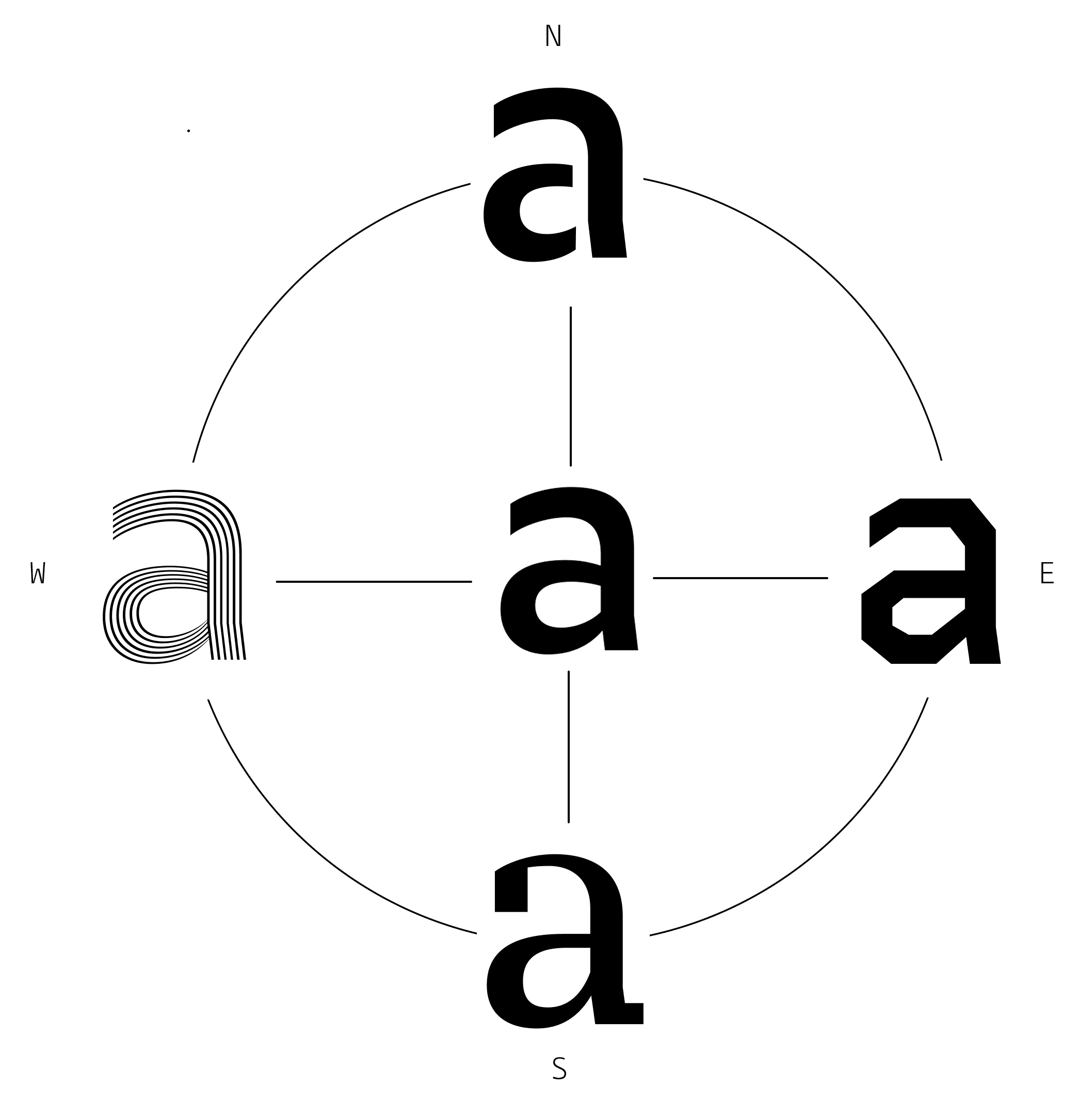The Dice — 026

This week I continued research on the evolution of social media, traditional media, news agencies, politics, and how this has impacted human behavior, intuition, and mental health. That’s normal, right? An early takeaway I've learned is that we should reduce the time spent each day digesting the news to fifteen minutes. Get in, get your update, and bounce. For the majority of us, this is one of the best ways to reduce anxiety and stress while regaining time and agency to focus on more important matters. I also jammed out a prototype of a playbook on countering loneliness, that epidemic that we’re not talking about. The early feedback looks promising. If you’d like to join the test let me know. A year ago I would not imagined digging into these topics but here we are.
Ok, let’s move on to the table.

“By the time I got canned less than 2 years later, the social media revolution catalyzed by blogs had taken off. The successor to, and destroyer of, the alt-weekly era had begun to emerge. I hadn’t felt that same sense of ‘this is the future of media’ since then, until just the last few months.” Anil Dash published an homage to Alt Media in the 90s and his vision for the second coming. “These new platforms are telling the stories nobody else is. When local news is hollowed out, when vital beats are neglected, when algorithms are spammed with generative nonsense, audiences that crave relevance or humanity will naturally gravitate to the outlets that offer something real. That’s as fun and interesting and important as the impulses that drove people to first embrace alt media 70 years ago.” I hope he’s right.
Living in Alaska in the 90s we had the Anchorage Free Press. It was our version of The Village Voice and it lived and died much the same way.

Are you ready for an existential question? Well, I’m going to ask anyway: “How much of our work exists because we ‘think’ we have to do it?” Whoa! Matt Klein and Elisabeth Bromberg explore the Psychology of Self-Sabotage in the latest issue of Zine. They begin by quoting the declassified CIA Strategic Services Field Manual No. 3—specifically on how to sabotage the workplace—and get into a provocative argument as to why we work the way we do and how to knock it off. “The prerequisite to un-fucking ourselves is to simply become aware of the cognitive biases in place, working against us, slowing us down, and diluting innovation. Once aware, only then can we work against them.” Wut?
If declassified military field manuals are your thing here is one worth your attention— US Army Field Manual No. 100-6 on Information Operations.

The more I read Freak Kingdom, the more I can’t unsee the parallels between our current state and the past. Aside from watching the movie and reading a tidbit here and there, I never paid much attention to Thompson. In addition to the biography, Hunter’s coverage of Nixon and his cadre of evil is required reading. To see the future, we have to understand the past. While you wait for those books to be returned to the library, read this interview with Hunter from 2003.
“I believe the Republicans have seen what they've believed all along, which is that this democracy stuff is bull, and that people don't want to be burdened by political affairs. That people would rather just be taken care of. The oligarchy doesn't need an educated public. And maybe the nation does prefer tyranny. I think that's what worries me. It goes back to Fourth Amendment issues. How much do you value your freedom? Would you trade your freedom for some illusion of security? Freedom is something that dies unless it's used.”


This is the coolest idea for combining typography and wayfinding I think I’ve ever read. It comes from Typotheque’s work on developing a new typeface and system for the Paris Metro. “The original concept for the typeface envisioned an interconnected system of fonts, with each station having a subtly different variation. The further a traveler moves from the city centre, the more pronounced these differences become. Changes between neighbouring stations would be nearly imperceptible, while a journey across the city would reveal more distinct typographic styles.” If you think this is cool go check out Plus Equals.
Typotheque also thought about using voice and tone to give passengers additional sense of place. “We wanted to extend this concept with varying audio announcements in each station, echoing the typographic shifts with corresponding changes in tone and voice.” Alas, the ideas were scrapped for simplicity but the end results are lovely.

Earlier this year Russian geologists claim to have found oil reserves totalling 511bn barrels of oil in Antarctica. That’s twice the amount of all the oil found in Saudia Arabia (for comparison it’s estimated there are an average of 8bn barrels under the Arctic National Wildlife Refuge in Alaska). Of course, the large reserve was found under the region of Antarctica which is claimed by Argentina, Chile, and the United Kingdom. A construction race is well underway on the continent as countries expand their claims before The Antarctic Treaty ends in 2048. Now that so much oil is in play, something tells me a few countries aren’t going to wait that long.

Alright, let's take it down a notch and look at alternative timelines by David Friedman. “There’s a genre of videos that can be found online that always makes me think of alternate timelines: failed TV pilots. Each time I see a pilot for a TV show that never got picked up, I wonder, but what if it had?” After browsing the list, David is right that the show Lookwell is the most interesting. “Most notable for me was Lookwell, a comedy written by Conan O’Brien and Robert Smigel starring Adam West as a washed-up actor who used to play a detective on TV and now imagines himself to be an actual detective.” Maybe they just had the wrong actor.
Published in Tacoma, Washington while jamming out to by Kill Your Television by Ned's Atomic Dustbin.

Member discussion